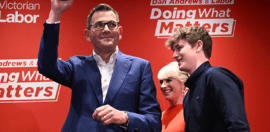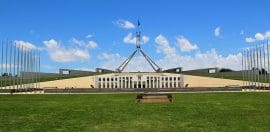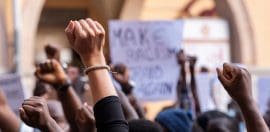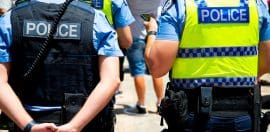Fears media raids could silence advocacy

7 June 2019 at 5:35 pm
Civil society groups have raised concerns over the threat the Australian Federal Police raids on journalists and news outlets pose to the ability of charity and advocacy groups to speak up for vulnerable and disadvantaged groups in Australia.
The groups said the raids were part of a “damaging trend” of attacks on press freedom and democracy in Australia and were aimed at intimidating journalists and silencing public interest whistleblowers.
On Tuesday, the AFP raided the home of Newscorp journalist, Annika Smethurst, investigating the publication of a leaked plan to allow the government to spy on Australians without them knowing.
The ABC offices in Sydney were then raided by the AFP on Wednesday over a series of 2017 stories, known as the Afghan Files. It was also revealed 2GB journalist Ben Fordham was approached by the Department of Home Affairs to reveal the source of a story about six Sri Lankan boats containing asylum seekers attempting to reach Australia.
Emily Howie, a legal director at the Human Rights Law Centre, said that attacks on public interest whistleblowers and the free press was a direct attack on democracy.
“Governments may be uncomfortable about journalists exposing wrongdoing, but that’s precisely why a free press is absolutely vital,” Howie said.
The Australian Conservation Foundation’s (ACF) democracy campaigner, Jolene Elberth, said the trend of reprisals against whistleblowers was troubling.
“Australia’s democracy relies on a free press, a strong and vibrant civil society that can advocate in the public interest and whistleblowers who are able to speak up without fear of being exposed,” Elberth said.
She said the media played a critical role in helping to expose poor environmental decisions, such as reports that revealed mining companies were accessing Australia’s emissions reduction fund to burn more fossil fuels and attempts by dirty coal plants to use the funds to upgrade their equipment.
“Without a completely free media, it is so much harder to expose or scrutinise bad environmental decision-making that will damage the places and wildlife Australians love,” Elberth said.
She told Pro Bono News that considering the moves by the government in 2018 to clamp-down on charitable advocacy, charities could be the next target.
“We’re concerned that charities could be targeted again in the same way that we were last year… and these recent raids could be indicative of the crackdown on civil society’s ability to advocate,” she said.
She said that if this happened, it would harm society’s most vulnerable.
“Charities and advocacy groups play a critical role in balancing power in our democratic system,” she said.
“We speak out for vulnerable people and for people who don’t have a strong voice in the public debate, and we certainly speak out for public interest and balance the discourse between private corporate interests and the public interest of the people.”
Last year the government introduced new espionage offences that make it an offence to deal with information that concerns national security if the person intends to, or is reckless as to whether their conduct would, prejudice Australia’s national security.
The penalties are 25 years (recklessness) to life (intention).
Howie said that the new laws “criminalised journalism” and called for urgent reform.
“This is shocking for those who are targeted but this surveillance also has a chilling effect on people coming forward,” she said.
“We need urgent law reform to stop punitive investigations and instead encourage truth-telling.”
Elberth said all of civil society needed to see the attacks on the press and whistleblowers as core issues in their activity from now on.
“This is something that we all have to get behind… because anybody who really cares about democracy should be speaking up against this,” she said.








The legal system has always been slow in adjusting to our society. Protest marching was banned in Queensland but we still marched. Journalists have a duty to protect their sources, even if it means being locked up as has happened in the past. Yes, our laws have been improving and as long as we continue to do the right thing, then Governments will still be held accountable. Just that people have been looking at their phones and all of the smoke and mirrors have come back from our childhoods.
Freedom and true democracy is a continuous battle and there will never be a victory, just progress.